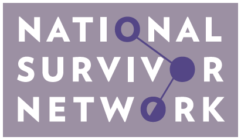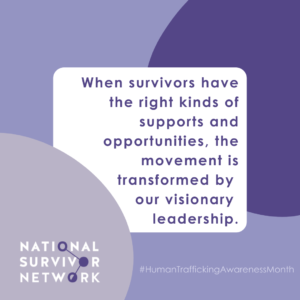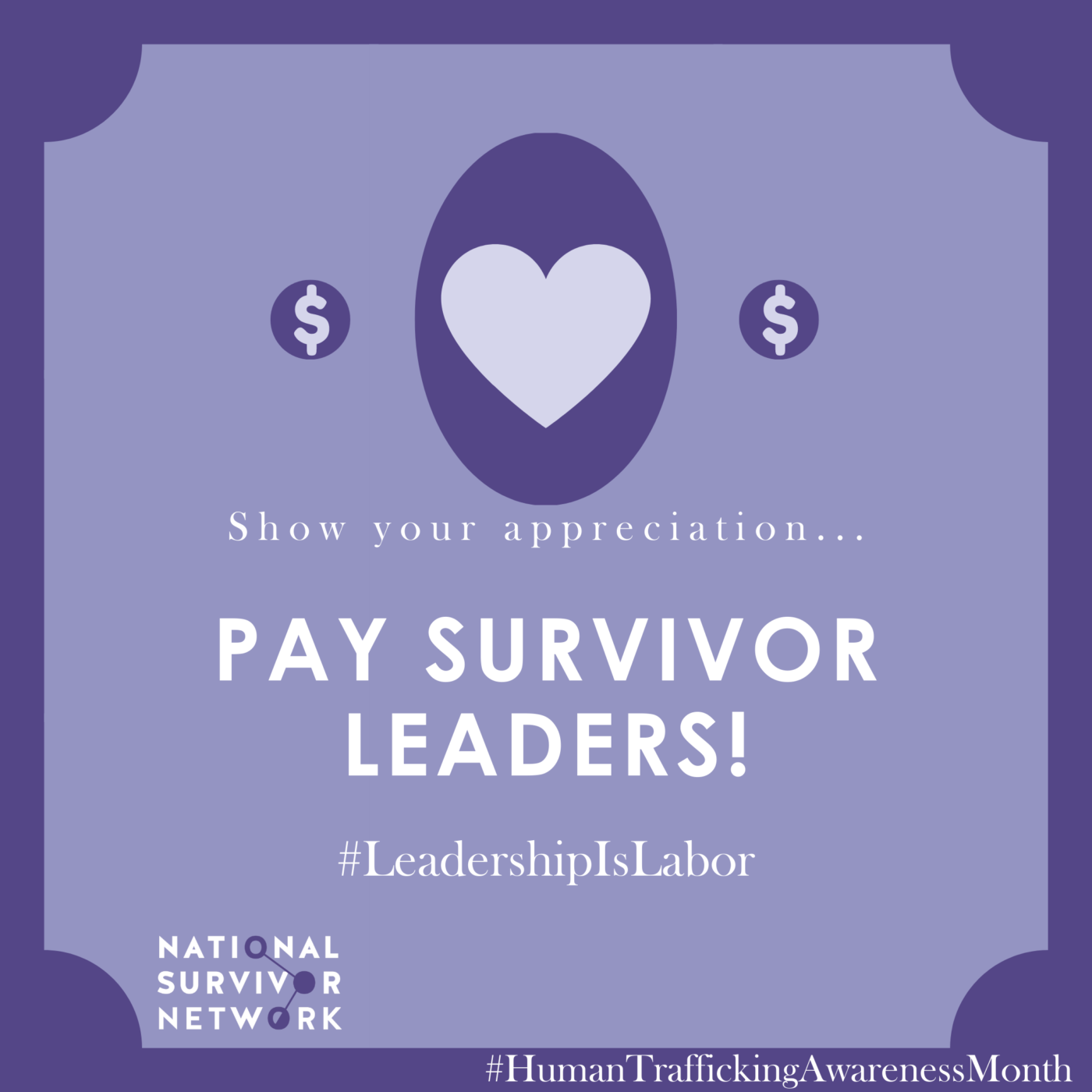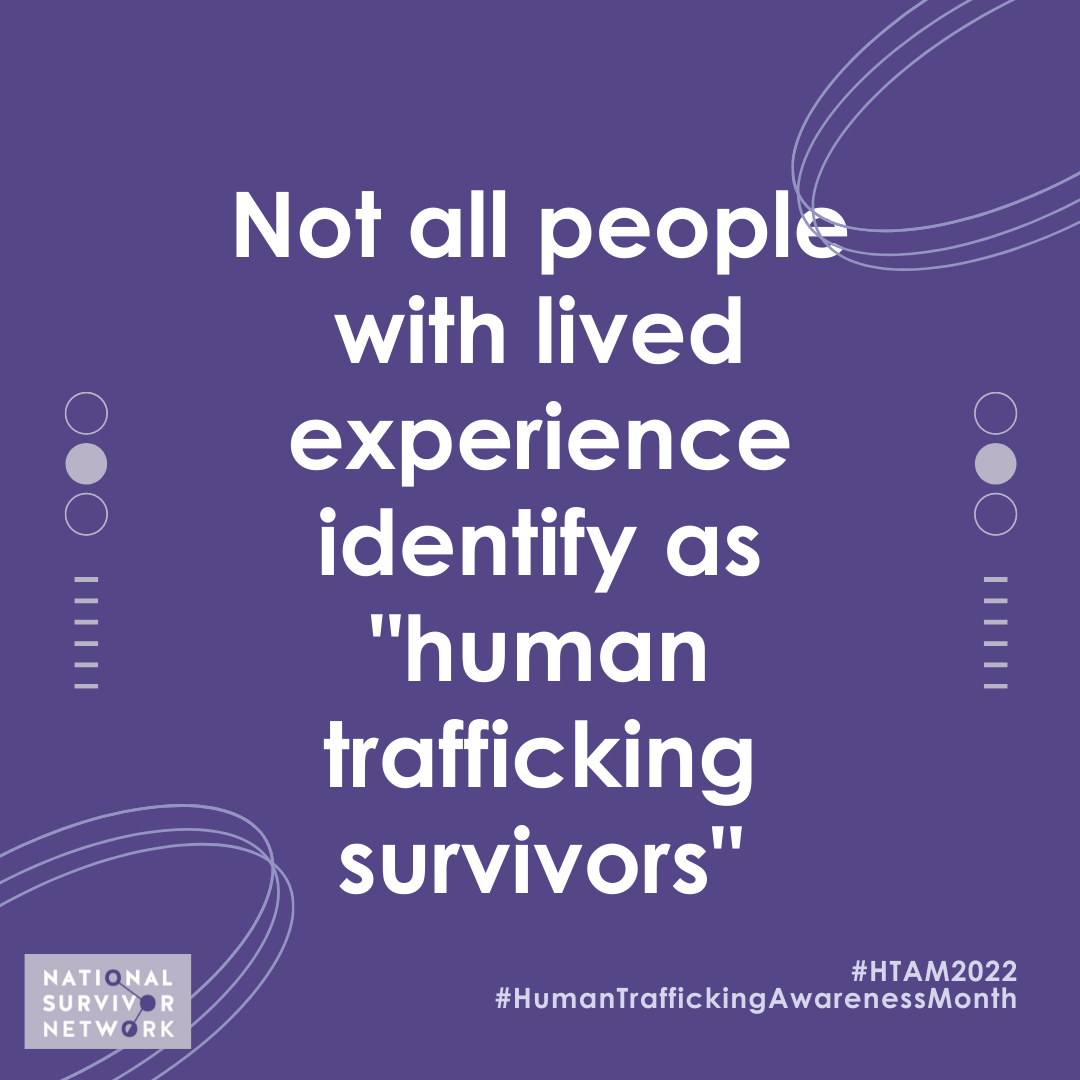Our theme for Human Trafficking Awareness and Prevention Month (January, 2022) was 31 Days of Change to Empower Survivor Leadership in the Anti-Human Trafficking Movement. Each day of the month, we shared a recommendation for movement change that could empower survivor leaders. Many days were recommendations for nonprofit organizations and managers; some days were recommendations for survivors rethinking how they want to engage in this work. We are delighted to share this information here. We recognize that these practices may be aspirational for some organizations, and that change sometimes happens incrementally. We invite you to join with us in making steps, big and small, toward meaningful change to empower survivor leadership!
This page displays best in Google Chrome.

Survivor is not a job description or skill set. It is a description of someone’s relationship to an experience.

When offering professional development and training opportunities to survivors, PAY THEM FOR THEIR TIME AS WELL to make these opportunities more accessible.

Maintain a folder of sample documents, and share it as part of onboarding.

Survivor leaders may not have experience negotiating pay. Lack of experience with formal processes does not mean they wouldn’t be a great hire!

Simplify application processes to show you value applicants’ time.

Use tutorial plugins like Loom to explain any processes essential to your work.

It is survivor-friendly policy to AVOID asking survivors to front expenses. Book their flights & rooms for them.

Consider running a one-off payroll or offering an advance or hiring bonus, as gaps in pay can be a barrier to survivor engagement in movement leadership.

Prioritize employee wellness, especially for survivors, who may have additional healthcare needs from their trafficking.

Labor rights are human rights. We strive to model this in our movement work as well as in our workplaces.

Learn ways to be sustainable in this work; be gentle with yourself and conscious of how your work impacts you. See tips at our LinkedIn.

Racial equity is more than hiring quotas: it is rethinking your entire organizational framework to root out inequitable practices & assumptions.

Learn more about & implement trauma-informed supervision here.
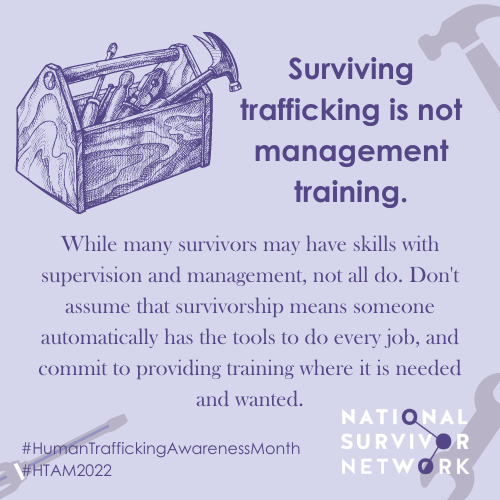
When hiring or promoting survivors into management or supervisory positions, help them learn the skills of effective management!

We were all new once. Avoid showing off or bragging. Be patient. Share wisdom & professional networks generously. Don’t gatekeep.

Many survivors have been working for years in related fields. Value this professional experience.

Empowering new leaders & youth leadership is movement-wide succession planning.

Listening to all survivors ensures that our solutions are meaningful and relevant.

Shared values create a container for generative conflict.
